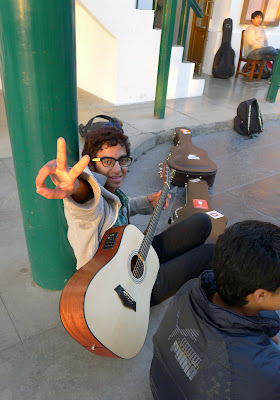The top 100 universities under the age of 50, thanks to The Guardian.
Some highlights:
Some highlights:
- South Korea's Pohang University of Science and Technology is the number one university under the age of 50.
- 30 different countries are represented in the top 100 – compared to just 26 in the top 200 of the Times Higher Education World University Rankings
- 20 of the top 100 under 50 institutions are in the U.K. Australia follows next with 14
- 9 universities in the rankings are from the US. In the Times Higher Education world top 100 universities ranked for reputation, the US dominated taking 60% of the places on the list
- The University of Illinois at Chicago is ranked 11 on this list
- 1998 - the youngest university, Milan-Bicocca in Italy came 25th
- 5 - both Spain and Taiwan have five institutions on the rankings following after the UK (20 institutions), Australia (14) and the US (9)


















